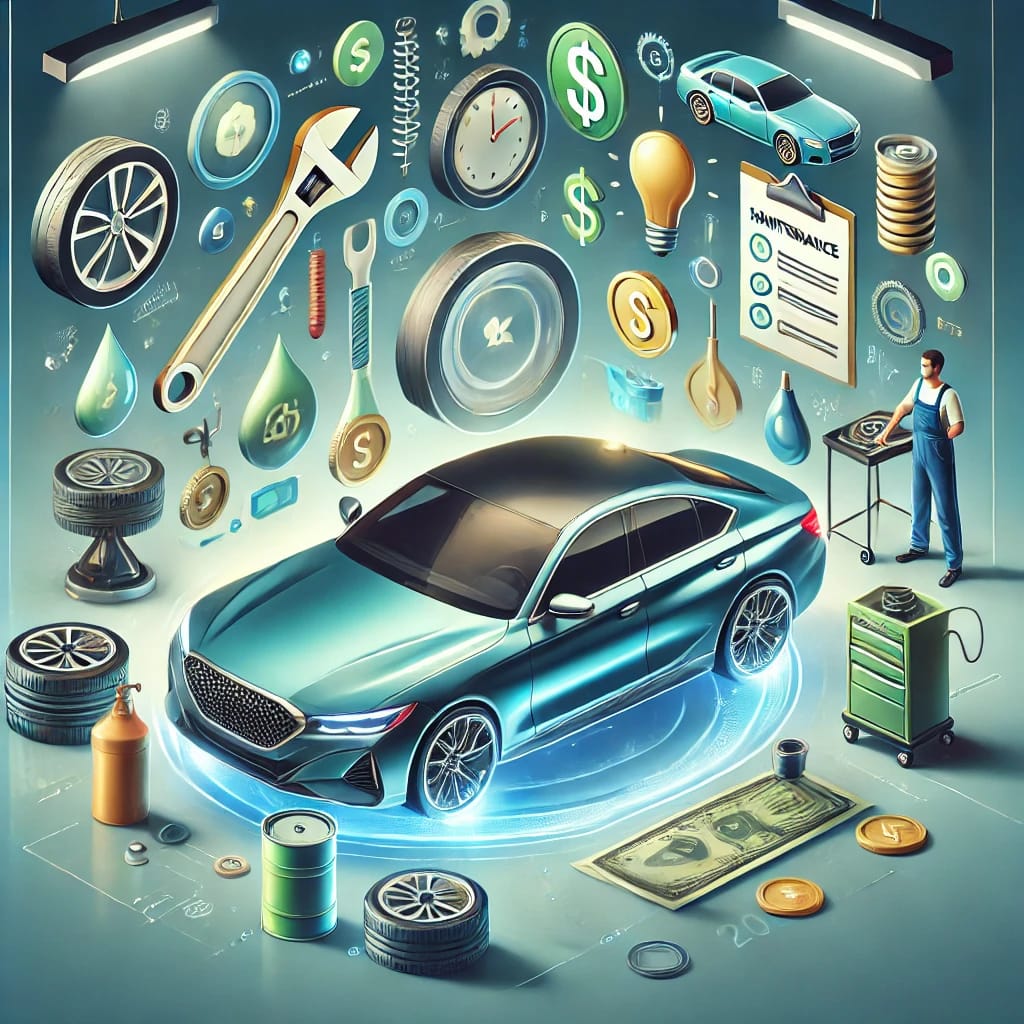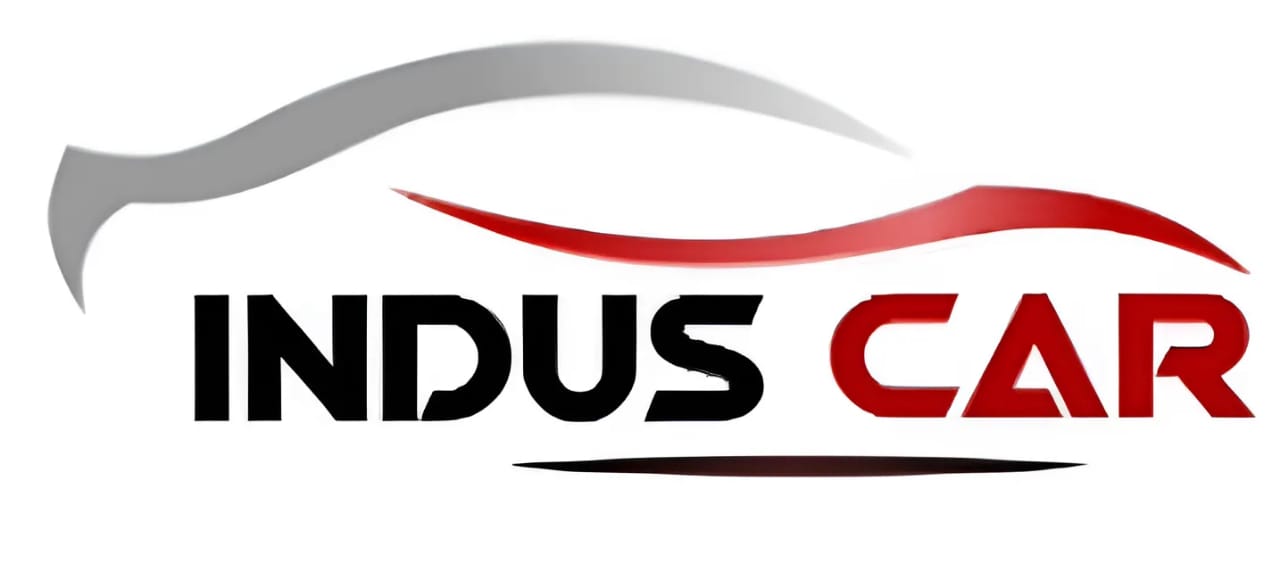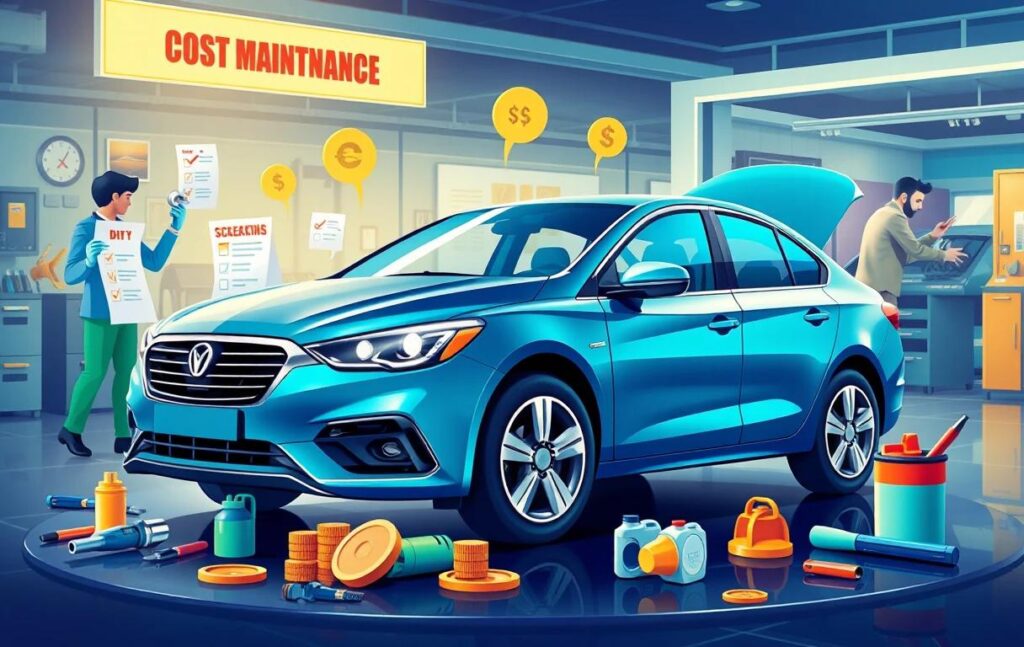Introduction
Owning a car comes with the inevitable responsibility of maintenance. While regular maintenance ensures the longevity and performance of your vehicle, it can sometimes strain your budget. If you’re wondering how to reduce car maintenance costs, this guide offers practical tips to keep your car in top condition without overspending. From DIY techniques to smart service choices, discover how to maintain your car affordably and efficiently.

Table of Contents
Why Is Car Maintenance Important?
Regular car maintenance is essential for the following reasons:
- Improved Performance: Regular upkeep ensures your car operates smoothly and efficiently.
- Longevity: Proper care extends the lifespan of your vehicle.
- Safety: Well-maintained cars are less likely to face breakdowns or accidents.
- Resale Value: A properly maintained car retains higher value in the used car market.
Top Tips to Reduce Car Maintenance Costs
1. Follow the Manufacturer’s Maintenance Schedule
Every car comes with a manual outlining the recommended maintenance schedule. Adhering to this schedule prevents costly repairs down the line. Missing essential services like oil changes, filter replacements, or brake inspections can lead to more significant issues.
2. Learn Basic DIY Maintenance
For simple tasks like:
- Oil Checks: Regularly check your oil level and refill if needed.
- Air Filter Replacement: Most car air filters can be replaced in under 10 minutes without professional help.
- Windshield Wiper Replacement: This is a quick and affordable DIY task.
By handling minor maintenance yourself, you can save significantly on labor charges.
3. Use Quality but Affordable Parts
Instead of opting for premium parts, consider OEM (Original Equipment Manufacturer) or high-quality aftermarket parts that meet your car’s requirements. These are often much cheaper and equally reliable.
4. Compare Service Providers
Don’t settle for the first quote. Shop around and compare prices from various mechanics or service centers. Local garages often charge less than dealerships while providing similar quality service.
Routine Maintenance Practices That Save Money
1. Keep Tires Properly Inflated
Underinflated tires reduce fuel efficiency and wear out faster, leading to higher replacement costs. Regularly check your tire pressure and inflate them to the recommended levels.
2. Change Fluids Timely
- Oil Changes: Delayed oil changes can damage the engine, leading to costly repairs.
- Brake Fluid & Coolant: Regular fluid checks prevent overheating and ensure brake safety.
3. Clean and Wax Your Car
A clean car is less likely to experience rust or corrosion, especially in areas with harsh weather. Waxing adds an extra layer of protection to your car’s exterior.
4. Address Issues Early
Small problems like unusual noises, leaks, or warning lights should be addressed immediately. Ignoring them can lead to bigger, costlier issues.
Ways to Save on Car Repairs
| Tip | How It Helps |
|---|---|
| Invest in Preventive Care | Regular inspections catch issues early, saving you from expensive repairs. |
| Choose a Trustworthy Mechanic | A reliable mechanic ensures quality repairs and avoids unnecessary replacements. |
| Keep a Maintenance Log | Tracking services helps avoid redundant repairs and ensures timely care. |
| Look for Coupons/Discounts | Many service centers offer promotions or loyalty discounts for regular customers. |
| Avoid Unnecessary Upgrades | Focus on essential repairs instead of expensive, non-critical upgrades suggested by mechanics. |
How Driving Habits Affect Maintenance Costs
1. Avoid Aggressive Driving
Sudden acceleration, hard braking, and frequent speeding wear out tires, brakes, and engine components faster.
2. Use Cruise Control on Highways
Maintaining a steady speed reduces engine strain and improves fuel efficiency.
3. Lighten Your Load
Carrying unnecessary weight increases fuel consumption and puts additional strain on suspension systems.
4. Drive Smoothly on Rough Roads
Potholes and uneven roads can damage your tires, suspension, and alignment. Drive cautiously and avoid rough terrain when possible.
Benefits of Regular Maintenance
| Benefit | Explanation |
|---|---|
| Cost Savings | Preventive care avoids expensive repairs. |
| Fuel Efficiency | Well-maintained cars consume less fuel. |
| Reliability | Reduces the risk of unexpected breakdowns. |
| Environmental Impact | Regular tune-ups ensure lower emissions, contributing to a cleaner environment. |
Additional Money-Saving Tips
1. Use Loyalty Programs
Many service centers and dealerships offer loyalty cards or rewards programs that provide discounts on services.
2. Rotate Tires Regularly
Rotating tires ensures even wear, extending their lifespan and delaying the need for replacements.
3. Inspect Belts and Hoses
Cracked belts or hoses can lead to engine overheating or breakdowns. Early replacements save costly repairs.
4. Opt for Multi-Service Packages
Bundling multiple services (e.g., oil change, tire rotation, brake inspection) often costs less than individual services.
Common Car Maintenance Myths to Avoid
| Myth | Reality |
|---|---|
| “Premium fuel is always better.” | Use the fuel grade recommended in your car’s manual. Higher octane doesn’t necessarily improve performance. |
| “Wash your car only occasionally.” | Frequent cleaning prevents rust and preserves the paint. |
| “Only dealerships can service my car.” | Certified local mechanics are often equally qualified and charge less. |
Conclusion
Reducing car maintenance costs doesn’t mean compromising your vehicle’s health. By following these smart tips—like regular inspections, DIY maintenance, and adopting better driving habits—you can save money while ensuring your car runs smoothly for years to come. Prioritize preventive care, compare service providers, and invest in quality parts to make car maintenance more budget-friendly.
FAQs
1. How often should I service my car?
Most manufacturers recommend servicing your car every 6 months or 5,000 miles, whichever comes first. Check your owner’s manual for specific intervals.
2. Is DIY car maintenance safe?
Yes, for basic tasks like oil checks, air filter replacement, and tire inflation. However, consult a professional for complex repairs.
3. Does regular car washing save money?
Yes, regular washing prevents rust and corrosion, reducing long-term repair costs.
4. Can I use generic parts for car maintenance?
OEM and high-quality aftermarket parts are safe alternatives to premium parts and are more affordable.
5. What is the best way to find affordable service providers?
Compare quotes from local mechanics, check online reviews, and look for promotions or discounts offered by service centers.



